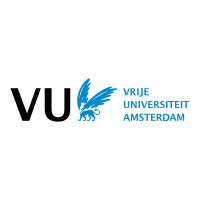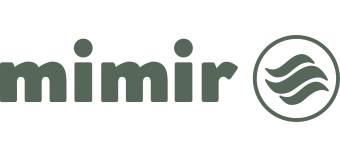
Jobs posted by Vrije Universiteit Amsterdam
Mimir provides the automated job management of jobs on job boards for Vrije Universiteit Amsterdam.
Latest jobs
Relatiemanager Partnerschappen LLO bij DURF
Als relatiemanager partnerschappen LLO ben je onderdeel van het team Fondsenwerving & Externe Relaties van DURF. Je gaat proactief op zoek naar maatschappelijke en corporate organisaties en je helpt mogelijk te maken dat onze LLO-onderwijsprogramma's gevolgd worden door mensen voor wie een universiteit anders buiten bereik zou blijven. Om dit te realiseren werk je nauw samen met interne collega’s en externe partners. Zo zorg je ervoor dat de gestelde doelen worden bereikt. Deze rol vraagt om een combinatie van sterk stakeholdermanagement, een goed begrip van zowel het maatschappelijk als het corporate domein, een proactieve werkhouding en een passie voor onderwijs waar je anderen in mee kunt nemen.
Jouw taken
- Je brengt het maatschappelijk en corporate domein in kaart, bepaalt in overleg met collega’s wie de belangrijkste stakeholders zijn en ontwikkelt op basis daarvan je wervingsplan
- Je ontwikkelt proposities en zet deze om in actieve wervingsactiviteiten
- Je draagt bij aan het stewardshipprogramma en ontwikkelt een zogenaamde donor- c.q. customer journey
- Je onderhoudt de relaties met de interne stakeholders en zorgt ervoor dat je goed op de hoogte bent van hun activiteiten op het gebied van LLO
- Je draagt zorg voor het analyseren en beheren van de database (CRM) met betrekking tot jouw stakeholders en zorgt ervoor dat jouw resultaten meetbaar en inzichtelijk zijn in rapportages. Daarvoor werk je actief vanuit onze CRM-database.
- Je analyseert deze resultaten, stuurt bij indien nodig en monitort de budgetten
- Je bent verantwoordelijk voor de administratieve afwikkeling van giften en bestedingen die het resultaat zijn van jouw wervingsactiviteiten.
AcademicTransfer
0 applications
0 views
30-04-2024 Vrije Universiteit Amsterdam
PhD Position Project NWO OC XL Metabolism
Microbial cell factories are engineered microorganisms that sustainably produce valuable compounds, from biofuels to fine chemicals. Product pathways in these factories are designed to yield desired compounds, with electron flow control being a critical engineering challenge, particularly for optimizing yield. Redox cofactors like NAD+/NADH play a key role in electron transfer, but their involvement in numerous reactions can lead to unintended effects when adjusting product pathways. Our project focuses on minimizing these effects by separating the pathways and metabolic networks, assigning NAD+/NADH for assimilation and a non-canonical redox cofactor for product formation.
In this NWO-XL project 7 PhD students and 2 postdocs from the VU, Wageningen and TU Delft work together to produce such novel cell factories. The role of this PhD position at the VU is to understand the fitness impact of the redox cofactor engineering, and to test robustness of engineered strains. We combine mathematical models (in collaboration with another VU PhD student) with laboratory evolution and physiological characterisation of strains in E. coli and S. cerevisiae.
AcademicTransfer
9 applications
0 views
30-04-2024 Vrije Universiteit Amsterdam
Docent Sociologie
We zijn op zoek naar een docent voor het coördineren en doceren van vakken op bachelor- en masterniveau binnen de afdeling Sociologie. Een aantal van deze vakken betreft het geven van onderwijs in kwantitatieve methoden. Daarnaast verricht je organisatorische werkzaamheden en werk je aan je eigen ontwikkeling als docent. In de bachelor Sociologie werken we vanuit een transdisciplinaire benadering. Dat houdt onder meer in dat maatschappelijke vraagstukken centraal staan en dat studenten van daaruit gaan leren over sociologische theorieën en onderzoek. Daarnaast werken we veel met maatschappelijke partners die onze bachelor en master studenten helpen bij het doorgronden van maatschappelijke problemen en het ontwerpen van en bijdragen aan mogelijke oplossingen daarvoor. Alle vakken kennen activerende onderwijsvormen, waarin studenten bijvoorbeeld aan de slag gaan met real life cases.
Jouw taken
- coördineren en verzorgen van onderwijs op bachelor- en masterniveau
- doceren en mede-(door)ontwikkelen van colleges en werkgroepen voor in de eerste plaats kwantitatieve methoden onderwijs, maar daarnaast ook voor andere vakken op bachelor- en masterniveau
- thesis begeleiding in de bachelor en de master Sociologie
- organisatietaken, bijv. mentoraat, voorlichting (nader af te stemmen)
AcademicTransfer
1 application
0 views
26-04-2024 Vrije Universiteit Amsterdam
Docent Sociologie
We zijn op zoek naar een docent voor het coördineren en doceren van vakken op bachelor- en masterniveau binnen de afdeling Sociologie. Een aantal van deze vakken betreft het onderwijs in methoden en technieken en de toepassing daarvan. Voor deze functie zoeken we naar een docent voor het geven van kwalitatieve onderzoeksmethoden. Daarnaast verricht je organisatorische werkzaamheden en werk je aan je eigen ontwikkeling als docent. In de bachelor Sociologie werken we vanuit een transdisciplinaire benadering. Dat houdt onder meer in dat maatschappelijke vraagstukken centraal staan en dat studenten van daaruit gaan leren over sociologische theorieën en onderzoek. Daarnaast werken we veel met maatschappelijke partners die onze bachelor en master studenten helpen bij het doorgronden van maatschappelijke problemen en het ontwerpen van en bijdragen aan mogelijke oplossingen daarvoor. Alle vakken kennen activerende onderwijsvormen, waarin studenten bijvoorbeeld aan de slag gaan met real life cases
- Coördineren en verzorgen van onderwijs op bachelor- en masterniveau
- Doceren en mede-(door)ontwikkelen van colleges en werkgroepen voor onderwijs in de (toepassing van) kwalitatieve methoden, en voor andere vakken op bachelor- en masterniveau
- Thesis begeleiding in de bachelor en de master Sociologie
- Organisatietaken, bijv. mentoraat, voorlichting (nader af te stemmen)
AcademicTransfer
1 application
0 views
26-04-2024 Vrije Universiteit Amsterdam
Promovendus Verbeteren Ondervoedingsbewustzijn Thuiswonende Ouderen
In Nederland is 8,5% van de thuiswonende ouderen ondervoed en dit loopt op tot ongeveer 20% bij 85-plussers of ouderen met een slechte eetlust. Ondervoeding bij ouderen is geassocieerd met functionele achteruitgang, vallen, slechter herstel van ziekte en vroegtijdig overlijden. Kwalitatieve studies laten consistent zien dat thuiswonende ouderen weinig kennis hebben van ondervoeding en zich niet goed bewust zijn van hun risico op en de gevolgen van ondervoeding. Vergroten van het bewustzijn van (risico op) ondervoeding is nodig zodat ouderen ondervoeding of een verhoogd risico erop eerder herkennen en tijdig zelf actie ondernemen of hulp zoeken. Dat is vooral belangrijk omdat ondervoeding en de risicofactoren vaak slecht worden opgespoord in de eerstelijnszorg en in de thuiszorg.
Recent is door onze onderzoeksgroep de Malnutrition Awareness Scale (MAS) ontwikkeld, een vragenlijst om het bewustzijn van ondervoeding bij thuiswonende ouderen objectief te kunnen vaststellen.
Binnen dit project houdt de promovendus zich bezig met het vaststellen van het bewustzijn van ondervoeding bij thuiswonende ouderen (o.a. binnen de Longitudinal Aging Study Amsterdam (LASA)) en het identificeren van groepen met een laag bewustzijn. Daarnaast onderzoekt de promovendus samen met ouderen en mantelzorgers hoe informatie over ondervoeding het beste kan aansluiten bij hun wensen en behoeften en hoe het bewustzijn van ondervoeding vergroot kan worden. Via co-creatie ontwikkelt de promovendus verschillende mogelijke interventies om het bewustzijn te vergroten. In de laatste fase van het project implementeert en evalueert de promovendus de ontwikkelde interventies op kwalitatieve en kwantitatieve wijze.
Jouw taken
- Het uitvoeren van statistische analyses in o.a. de LASA dataset;
- Het bijdragen aan de organisatie van nieuwe dataverzamelingen in de LASA studie;
- Het werven van thuiswonende ouderen en hun mantelzorgers en uitvoeren van kwalitatief onderzoek;
- Het uitvoeren van co-creatie onderzoek met de doelgroep en andere betrokkenen (o.a. via het Partnernetwerk Ondervoeding Ouderen);
- Het implementeren en evalueren van communicatiestrategieën (procesevaluatie);
- Het presenteren van bevindingen op (inter)nationale congressen;
- Het dissemineren van de bevindingen in wetenschappelijke artikelen en een proefschrift;
- Het bijdragen aan onderwijs binnen de afdeling Gezondheidswetenschappen.
AcademicTransfer
2 applications
0 views
26-04-2024 Vrije Universiteit Amsterdam


